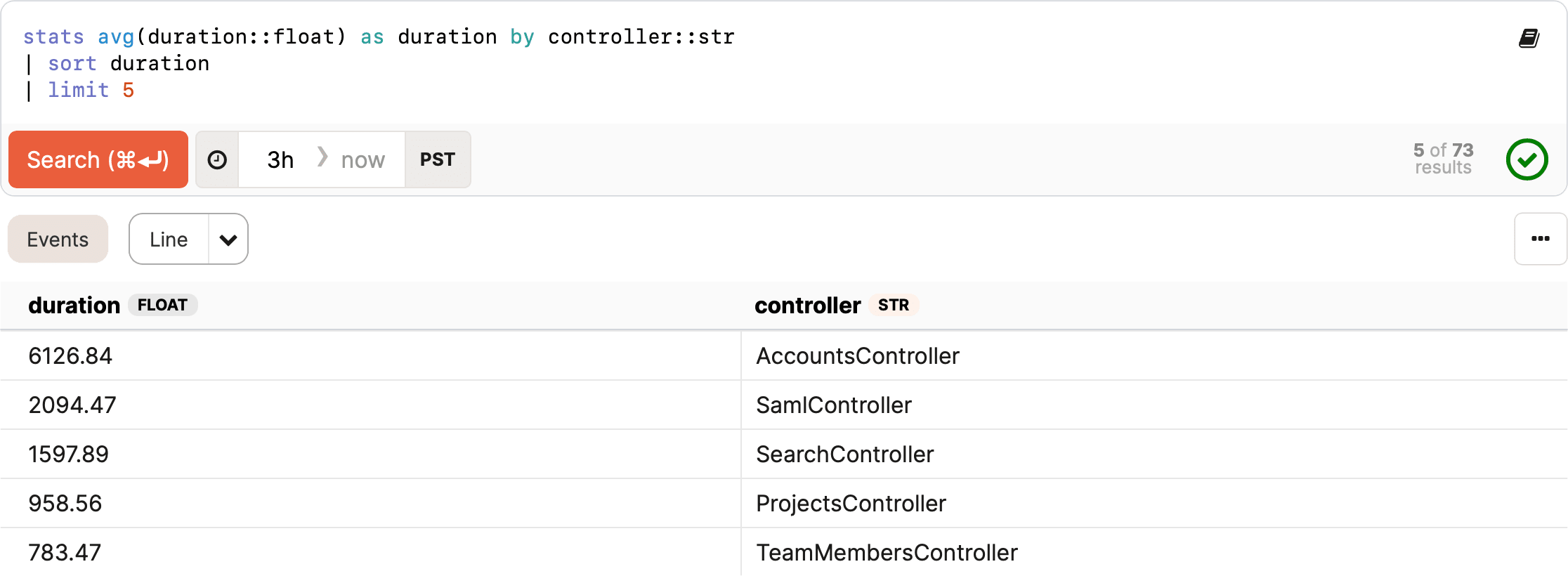Full-stack Logging & Observability
Log everything, ask anything
Gain insights into your errors, application logs, and other event streams with a powerful query language and flexible visualizations.
filter event_type::str == "feature"
| stats unique(user_id::int) as count by name::str
| sort count
| limit 5
4 lines



Turn events into Insights
Get actionable intelligence from your logs, no tail required. Who wants to sit around tailing logs all day? All the events you send to Honeybadger Insights can be queried, analyzed, and even turned into metrics. Application logs, clickstream data, audit trails—you name it—squeeze the value from the volume!

Logs? Metrics? Traces? Wide Events
No one knows what Observability means anymore, and we're not sure they ever did. Forget logs, metrics, and traces—you need Wide Events. A Wide Event is a collection of properties that may be useful later (the more, the better). They're the best way to prepare for unknown unknowns — the things you can't anticipate before an incident.
In Honeybadger, everything is an event, not just the big three. User behavior, business intelligence, analytics—imagine the possibilities when everything is cross-correlated and stored in one place.
Uncover why that happened
Get fast answers to your questions with BadgerQL. Slowest requests today? Most common errors? Who signed up last weekend? BadgerQL is a powerful query language that lets you slice and dice your events to find the needle in the haystack.

Respond in real-time
Bridge the gap between data and action with Insights Alarms — and transform any BadgerQL query into an actionable alert that notifies your team.

See the bird's-eye view
Derive metrics from any event and create charts and dashboards.

Spot catastrophes before they happen
Get ahead of potential issues. We’ll show you the warning signs before it becomes an all-hands-on-deck emergency.
Honeybadger, supercharged
Honeybadger Insights comes pre-filled with dashboards for errors, uptime checks, and check-ins. Use it to gain immediate insights into your application's health and performance—then send your application logs to gain even more context.

How will you use Insights?
Insights is versatile—like a Swiss Army knife for your data. How will you use it? Here are a few ideas to get your started.
Application Performance Monitoring
Add instrumentation to your app to track API call durations, background job latency, etc., and send those metrics as log events.
Customer Lifecycle Analysis
Track and analyze customer behavior and lifecycle events, like sign-up rates, feature usage, and other events you care about to support your marketing team.
SaaS Billing Analysis
Send your billing events to Insights and create revenue dashboards, monitor sales trends, and discover which features drive upgrades.
Correlated Event Tracking
Use a correlated trace ID to track all events related to a particular request, providing a comprehensive view of what happens during that request's lifecycle.
CI/CD Pipeline Monitoring
Track events from your build pipeline, such as a count of failed tests, test run durations, and deployment time, to monitor the health of your CI/CD pipeline.
Privacy-First Web Analytics
Use an open source analytics library such as ahoy.js to collect web analytics, explore your data in one place with BadgerQL, and create custom dashboards.
Cut through the noise
See the bigger picture, put things into context & detect anomalies before they become catastrophes.
